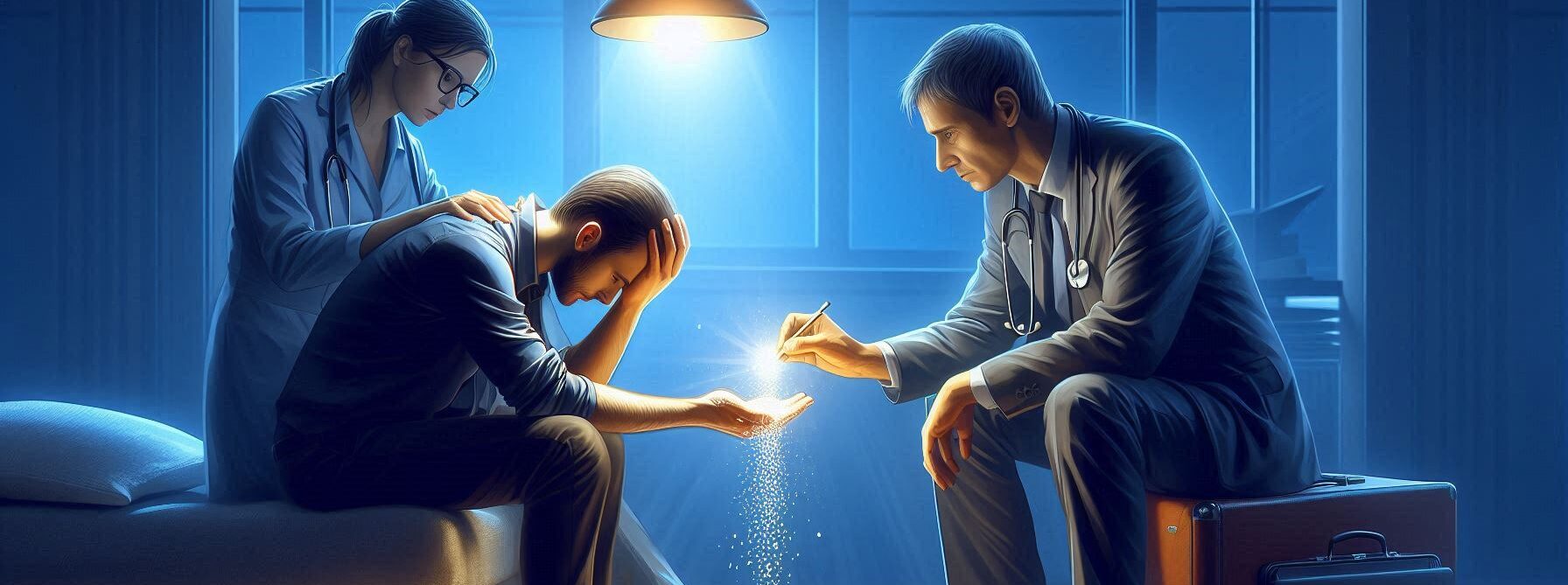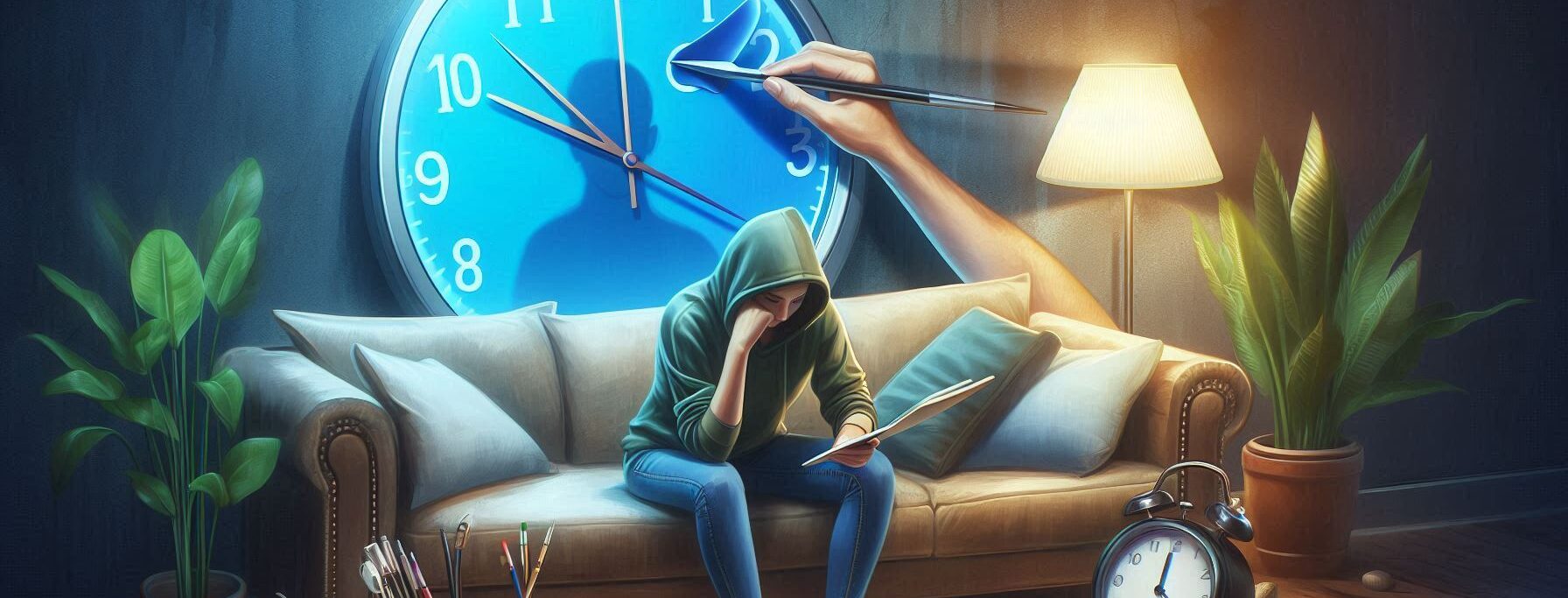Let’s face it: life can sometimes feel like a never-ending episode of a sitcom where the main character just can’t catch a break.
You know, the kind where they trip over their own shoelaces while trying to impress someone? Yeah, that’s pretty much all of us at some point!
But when those feelings of sadness and hopelessness start taking over more than just your Tuesday night plans, it might be time to consider seeking professional help. So, let’s dive into this topic with the grace of a hippo on roller skates.
Top Takeaways and Key Concepts
- Recognize prolonged sadness, irritability, or changes in sleep and appetite as warning signs.
- Notice when depression interferes with daily life, work, relationships, or enjoyment of activities.
- Explore treatment options like therapy, medication, or a combination tailored to your needs.
- Find a mental health professional who listens, understands, and makes you feel comfortable.
- Take action promptly—seeking help early prevents symptoms from worsening and supports recovery.
Summary of This Article
This article highlights the importance of recognizing depression signs, including persistent sadness, irritability, and changes in sleep or appetite, as well as its impact on daily life, work, and relationships. It discusses treatment options such as therapy and medication, emphasizing the need for personalized approaches. Finding a supportive professional who makes you feel understood is crucial for effective care. The article stresses early action, reminding readers that seeking help is a brave step toward emotional recovery and overall well-being.
Recognizing the Signs: What’s Going On?

First things first—how do you even know when it’s time to seek help? It’s not like there’s a flashing neon sign above your head saying “GET HELP NOW!” (Although wouldn’t that be convenient?).
Sometimes, our brains are tricky little devils that love to play hide-and-seek with our emotions.
If you find yourself feeling sad for an extended period or if simple tasks like getting out of bed seem as daunting as climbing Mount Everest in flip-flops, these could be red flags waving in your face. I mean, who knew laundry could become such an epic saga?
And let’s not forget about irritability—if you’re snapping at your loved ones faster than a rubber band on a hot summer day, it may be time to talk to someone.
Interestingly enough, changes in appetite or sleep patterns can also signal trouble. If you’re suddenly eating everything in sight or skipping meals like they’re optional side dishes at Thanksgiving dinner, that’s worth noting too. Pay attention! Your body often knows what your mind tries to ignore.
The Impact on Daily Life: How Bad Is It?
Now let’s see how depression affects daily life because honestly, if you can’t enjoy pizza anymore—or worse yet—your favorite Netflix show feels boring (who even thought that was possible?), then we have a problem!
If you’re finding joy harder to come by than finding matching socks after laundry day, consider reaching out for support.
When depression starts interfering with work or relationships—like missing deadlines because you’d rather stare blankly at the wall—it might be time for professional guidance.
Remember that friend who always has their life together? Well, they probably don’t; they just have better coping mechanisms—or maybe they’ve learned how to fake it until they make it!
Speaking of which, if friends are starting to avoid you because every conversation turns into an emotional monsoon… well… yikes! That’s another sign that professional help could be beneficial. After all, nobody wants their social calendar filled with awkward silences and heavy sighs!
Exploring Options: Therapy vs. Medication
Okay, so you’ve recognized the signs and acknowledged the impact on your life—what now? This is where things get interesting because there are multiple paths you can take.
Some folks swear by therapy sessions as their lifeline while others find medication works wonders for them—sometimes both!
Therapy can provide tools and strategies tailored specifically for you. It’s like having a personal trainer but for your mental health instead of biceps (though I wouldn’t say no to some arm curls).
By talking through feelings and experiences with a trained professional, many people discover new perspectives and coping skills.
On the other hand—and this is important—not everyone needs medication; however, if therapy alone doesn’t seem effective after several months (and no one enjoys being stuck in emotional quicksand), then discussing medication options might make sense.
Just remember: everyone’s journey is unique; what works for one person may not work for another.
Finding the Right Professional Support
Now comes perhaps one of the most critical steps: finding someone who fits well with you personally—a therapist or psychiatrist who understands YOUR quirks (and believe me we all have them!).
Honestly speaking, it’s essential to feel comfortable enough so that sharing isn’t akin to pulling teeth!
You might need to try out different professionals before finding “the one.” Think of it as dating but without any awkward small talk about favorite colors or whether pineapple belongs on pizza (it does).
You want someone who listens actively and makes you feel heard—even when you’re rambling about why cats think they’re superior beings.
And hey! It’s okay if it takes time; just keep searching until something clicks! After all, this is about YOU getting better equipped emotionally so don’t settle!
Taking Action: Don’t Wait Too Long
Finally—and this cannot be stressed enough—don’t wait too long before seeking help! Sometimes people think they should handle everything themselves first (“I’ll fix my broken leg later!” said no sensible person ever).
Ignoring symptoms only allows them room to grow bigger and scarier than imagined monsters hiding under beds.
Honestly speaking from experience here—asking for help isn’t weak; it’s brave! You’re taking charge of your mental health like an absolute rockstar readying up for concert night! So, grab that phone (or carrier pigeon) and reach out today!
Suggested Resources:
Mental Health America
https://www.mhanational.org/
National Alliance on Mental Illness
https://www.nami.org/
Substance Abuse and Mental Health Services Administration
https://www.samhsa.gov/
American Psychological Association
https://www.apa.org/
Frequently Asked Questions
What are early signs that I may need professional help for depression?
Persistent sadness, irritability, and noticeable changes in sleep or appetite lasting more than a couple of weeks are common early indicators.
How do I know if depression is interfering too much with my daily life?
If work performance, relationships, or enjoyment of activities decline significantly, it may signal that symptoms require professional support.
What treatment options are available for depression?
Therapy, medication, or a combination of both are common approaches chosen based on individual needs and symptom severity.
How does therapy help with depression?
Therapy provides coping tools, emotional insight, and personalized strategies to manage symptoms and improve daily functioning.
When should I consider medication for depression?
Medication may be helpful when symptoms are moderate to severe or when therapy alone has not provided sufficient relief.
What should I look for in a mental health professional?
A good fit includes feeling heard, understood, and comfortable enough to share openly without fear of judgment.
Why is seeking help early important?
Early treatment prevents symptoms from worsening and supports faster recovery, reducing the long-term impact on daily life.

Kevin Collier is a passionate mental health advocate and writer for SadFAQ.com, where he explores the complexities of depression and mental well-being. With a deep understanding of mental health challenges, Kevin provides compassionate insights and practical advice to help individuals navigate their journeys toward healing. His articles aim to destigmatize mental health issues, offering support and resources for those seeking to improve their emotional resilience. Committed to raising awareness and fostering open conversations, Kevin’s work empowers readers to prioritize their mental health and seek the support they deserve.




